Replace the Cartesian equation with an equivalent polar equation.2x + 3y = 6
A. 2 sin ? + 3 cos ? = 6r
B. 2 cos ? + 3 sin ? = 6r
C. r(2 sin ? + 3 cos ?) = 6
D. r(2 cos ? + 3 sin ?) = 6
Answer: D
You might also like to view...
Find fx, fy, and fz.f(x ,y, z) = sin (xy) cos (yz2)
A. fx = y cos (xy) cos (yz2); fy = z2 sin (xy) sin (yz2)- x cos (xy) cos (yz2); fz = 2yz sin (xy) sin (yz2) B. fx = y cos (xy) cos (yz2); fy = x cos (xy) cos (yz2) - z2 sin (xy) sin (yz2); fz = -2yz sin (xy) sin (yz2) C. fx = y cos (xy) cos (yz2); fy = x cos (xy) cos (yz2) - z2 sin (xy) sin (yz2); fz = 2yz sin (xy) sin (yz2) D. fx = y cos (xy) cos (yz2); fy = x cos (xy) cos (yz2); fz = -2yz sin (xy) sin (yz2)
Graph the function.y = log4x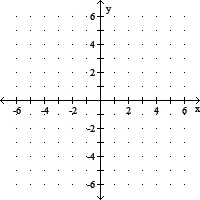
A. 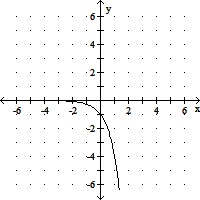
B. 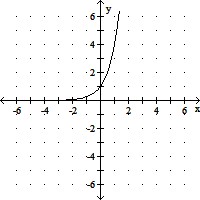
C. 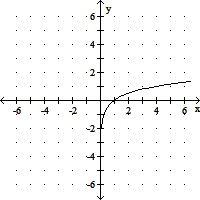
D. 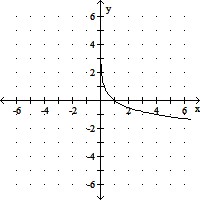
Determine whether the improper integral converges or diverges. 
A. Converges B. Diverges
Convert the polar equation to rectangular form. Identify the curve.r = 10 sin ?
A.  = 10y; a circle centered at (0, 5) with radius 5
= 10y; a circle centered at (0, 5) with radius 5
B.  = 10x; a circle centered at (5, 0) with radius 5
= 10x; a circle centered at (5, 0) with radius 5
C. x2 + y2 = 10x; a circle centered at (5, 0) with radius 5
D. x2 + y2 = 10y; a circle centered at (0, 5) with radius 5